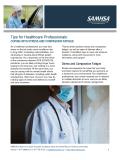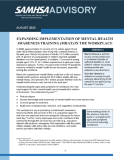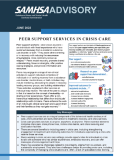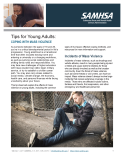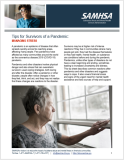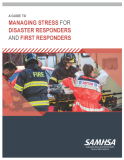
This guide offers information and tips to disaster responders and first responders to help them manage stress during crisis response. It describes how stress affects the body and suggests ways for individuals and organizations to promote and engage in stress management.
Units per Product
Download
A Guide to Managing Stress for Disaster Responders and First Responders
File Type: PDF
File Size: 6.64 MB


